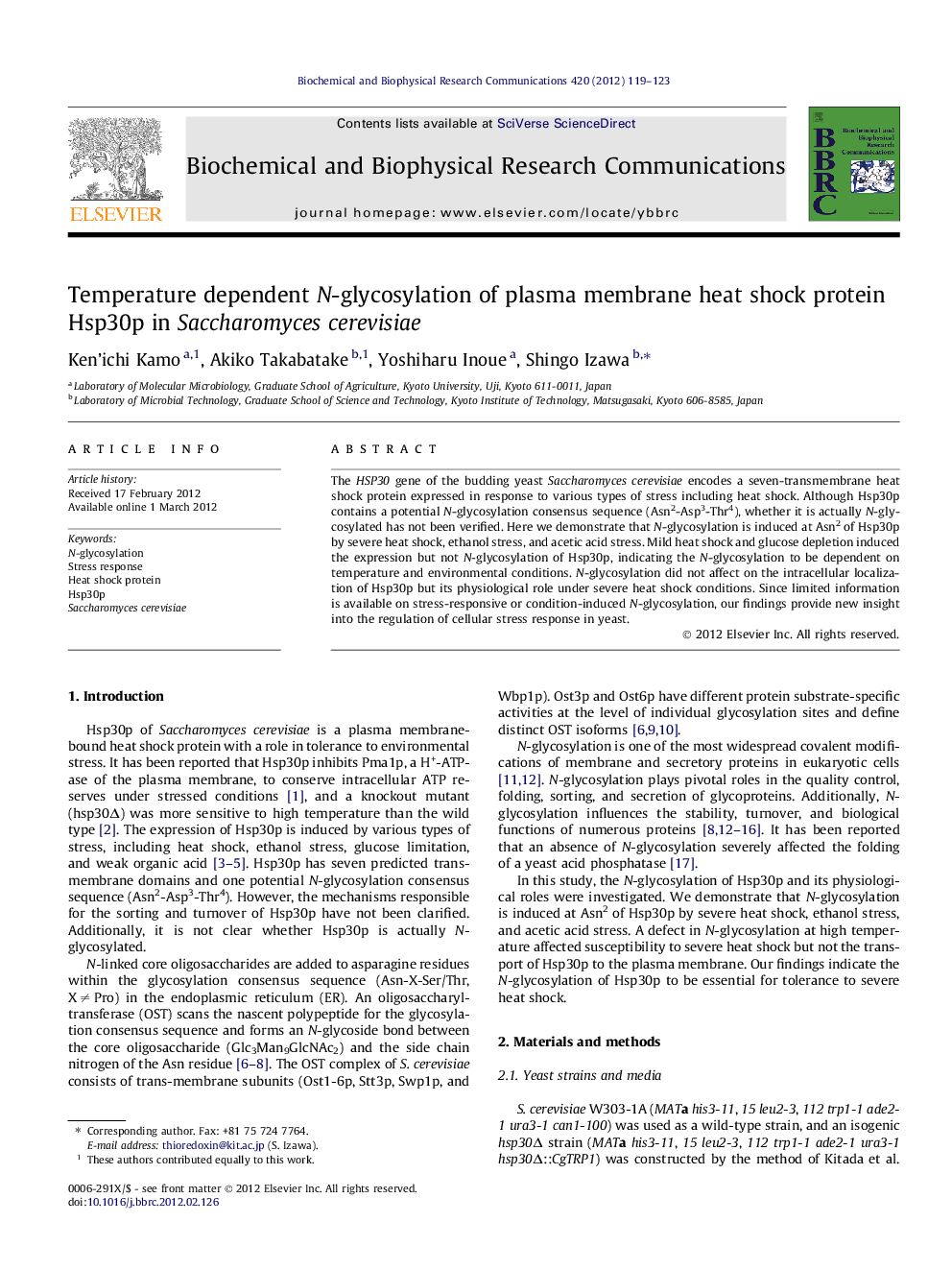| Article ID | Journal | Published Year | Pages | File Type |
|---|---|---|---|---|
| 1929855 | Biochemical and Biophysical Research Communications | 2012 | 5 Pages |
The HSP30 gene of the budding yeast Saccharomyces cerevisiae encodes a seven-transmembrane heat shock protein expressed in response to various types of stress including heat shock. Although Hsp30p contains a potential N-glycosylation consensus sequence (Asn2-Asp3-Thr4), whether it is actually N-glycosylated has not been verified. Here we demonstrate that N-glycosylation is induced at Asn2 of Hsp30p by severe heat shock, ethanol stress, and acetic acid stress. Mild heat shock and glucose depletion induced the expression but not N-glycosylation of Hsp30p, indicating the N-glycosylation to be dependent on temperature and environmental conditions. N-glycosylation did not affect on the intracellular localization of Hsp30p but its physiological role under severe heat shock conditions. Since limited information is available on stress-responsive or condition-induced N-glycosylation, our findings provide new insight into the regulation of cellular stress response in yeast.
► N-glycosylation was induced at Asn2 of Hsp30p by severe heat shock. ► N-glycosylation of Hsp30p was not induced by mild heat shock and glucose depletion. ► N-glycosylation affects the physiological roles of Hsp30p upon severe heat shock. ► N-glycosylation has little effect on the intracellular localization of Hsp30p. ► Hsp30p spreads throughout the plasma membrane as small foci.
